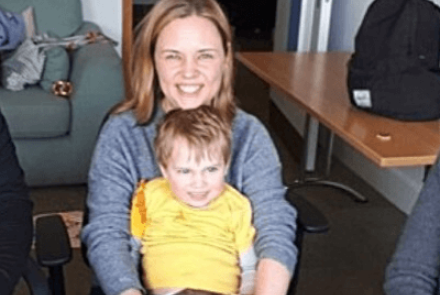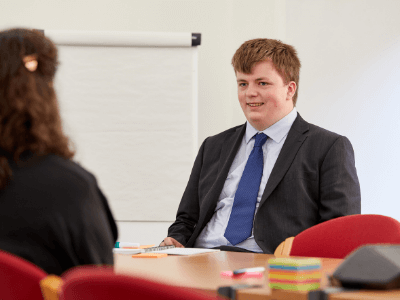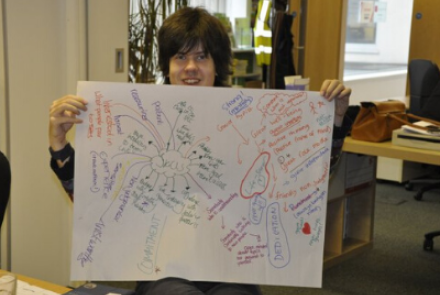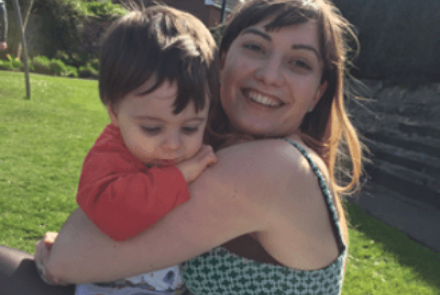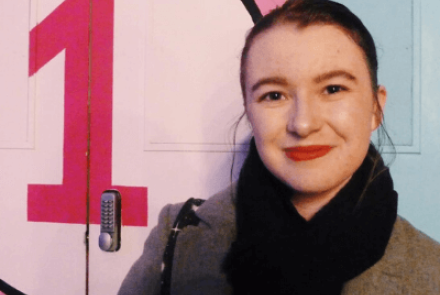How do I get a diagnosis?
If you are concerned that your son or daughter has autism, it’s a good idea to start seeking a diagnosis as soon as you can. If you’re wrong, the worst that can happen is that the doctors tell you so. If you’re right, on the other hand, then you can know that you have taken the first step towards getting your child the help and support they deserve.
It’s rare for a child to be diagnosed with autism under the age of two. Parents sometimes have a strong suspicion before then (though not always), but since language and social development are such a major part of the condition, and toddlers tend to have limited language and social skills even if they’re neurotypical, medical professionals tend to be unwilling to diagnose a child who hasn’t yet reached the age where the difference between your child and their peers is starting to become clear. The average age of diagnosis is currently about five and a half.
It may be your idea to seek a diagnosis, or it might be someone else’s suggestion. School or nursery staff are sometimes the first to spot the signs – they have a whole class of neurotypical children to compare your child with, a resource you couldn’t fit into your own house – and may suggest you look into a diagnosis. The person who does this might be the classroom teacher, a teaching assistant, or the Special Educational Needs Coordinator (SENCO): publicly-funded schools and nurseries are required to provide for the needs of children with special educational needs (SEN), and this can include making a formal request for assessment.
At the moment there’s no standard test for autism: professionals go on a broad set of criteria and it’s basically a judgment call – and you can get situations where different professionals disagree with each other. However, the basic process works like this:
Step 1. Visit your GP
To start the process, you need what’s called a ‘paediatric assessment’, and for that, you need a referral. Go to your GP, explain that you have concerns about your son or daughter’s development and that you’d like to check the possibility of autism, and ask to be referred.
Some GPs are very cooperative (especially if the practice records have already picked up some indicators in the regular check-ups); others may be less helpful if they don’t see the signs in your child themselves. This doesn’t mean that they’re right – doctors can miss things, especially things like ongoing development issues that can’t be spotted in a ten-minute session – so you may need to be insistent or ask for a second opinion. Making enemies at the surgery is never a good idea, but parents of children with autism sometimes have to develop a talent for making a polite nuisance of themselves (more properly known as ‘advocacy’), so if you feel brushed off, don’t be discouraged.
Other health professionals can refer a child for a paediatric assessment as well, so if your son or daughter has already been seen by other professionals (for instance, if he or she has delayed motor skills and has been referred for occupational therapy or physiotherapy), they might be able to refer you as well. Whoever you can see soonest and will be most supportive is probably the best choice; most people go with the GP.
Step 2. The paediatric assessment
Exactly how this will be done varies according to your local authority. In some places it’s a single meeting; in others it’s a series, as the paediatrician makes an initial assessment and then refers the child along to a colleague who specialises in social communication. Sometimes you’ll see only one expert, sometimes a whole team. For your own peace of mind it’s a good idea to ask what you should expect at the outset, so you at least know what’s what.
People who may be included in the process might be:
- A paediatrician: This is a doctor who specialises in children’s health and development; it’s often paediatricians who make the diagnosis of autism.
- A psychiatrist: Psychiatrists are clinical doctors who specialise in mental conditions; like regular doctors, they can prescribe medication. This won’t be necessary unless your son or daughter has other conditions – there’s no medication to treat autism – but it’s one of the things that distinguishes psychiatrists from psychologists: they can prescribe, and they have more background in anatomy, physiology and general medicine. They are also more likely to take a neurological approach, which is relevant because autism is very much about the wiring of the brain.
- A clinical psychologist: Psychologists, unlike psychiatrists, can’t prescribe medication; instead, they’re trained entirely in psychology without the medical background. In the case of children with autism, they often help with specific problems like managing behavior difficulties.
- A speech and language therapist: These people are often part of a multi-disciplinary team when it comes to supporting children with autism, and after diagnosis the NHS will often assign one to help your son or daughter. You can ask for a referral through your GP or see if the school can call one in. Since speech and language is a major issue with autism, they may also be involved in the assessment process.
- An occupational therapist: The purpose of OT is to teach children to manage everyday activities that might be difficult for them, such as eating with a knife and fork. Children with autism can have problems with their fine motor skills, and a good OT can make life a lot easier for them.
The examination consists of two basic parts: talking to you to get your perspective on things, and watching your son or daughter to see how he or she behaves. In other words, you’ll most likely be answering a questionnaire. Again, these vary from place to place, but the areas they cover are likely to include:
- What are the basic concerns that led you to ask for an assessment
- How your son or daughter behaves with you and the rest of the family
- How he/she behaves with strangers
- His/her physical development
- How he/she plays
- His/her general health and wellbeing, including if there are any difficulties with toileting, eating or sleeping (three areas that commonly do cause problems with autism)
- Whether he or she is talking or making any kind of vocal sounds
- If he or she goes to nursery or school, how that’s going
- Anything else you want to add.
This can be a lot to think of while your son or daughter is racketing around the room, so you might want to take some notes before the day to make sure you don’t forget anything important.
Step 3. Diagnosis
It would be nice if a paediatric assessment always cleared up the question then and there, but unfortunately it’s not always that straightforward.
Some children are diagnosed straight away. This is a lot for the family to absorb, but it does have one major advantage: at least now you have an answer, you can move on to getting the proper systems set up to help your son or daughter. It's very important to keep all reports and letters safe in case you need them in the future for an assessment of need.
Once you get the diagnosis, speak to your child's nursery or school to see if they think your son or daughter’s needs can be met using the school's SEN process. If not, you can apply for an assessment for an Education, Health and Care (EHC) plan. An EHC plan can be crucial to making sure your son or daughter gets the right schooling.
It’s also a good time to start looking into Disability Living Allowance and other forms of financial support: once you’ve got a diagnosis, you can start unlocking benefits that you previously couldn’t access.
For your own feelings, it can also remove some of the guilt, confusion and anxiety that often goes with being the parent of a child with undiagnosed autism: you now know what’s going on, you know it’s not your fault or anybody else’s, and you can hold your head high and start telling all the people who side-eye you over your ‘badly behaved’ child to stop being prejudiced against kids with additional needs.
With some children, on the other hand, the professionals aren’t quite sure. They may show some signs of being on the spectrum, but not enough to make a definite diagnosis. It’s also possible that a child may have a different condition that shares some symptoms with autism – some of the attention deficit disorders, epilepsy, dyslexia, sensory integration difficulties, selective mutism, language delays, and various developmental delays do overlap – in which case a diagnosis of autism would be a mistake. Doctors have to be careful, as the wrong diagnosis can have serious consequences.
If you’re in the position where you’re sure your child has autism but the paediatrician refuses to diagnose officially, it can be very frustrating. You may indeed be right about your son or daughter – many children in this position still do go on to a diagnosis of autism later in life. It’s worth bearing in mind that you don’t need a diagnosis to get extra help: if your son or daughter clearly is having some difficulties, the professionals will record that, and you can still apply for help (such as an EHCP) on the strength of that.
In short: the diagnosis/non-diagnosis you get isn’t the end of the road either way: it’s the next step in starting to access the help you and your son or daughter need. Whether you get a diagnosis or not, you have put on record your concerns and your son or daughter’s difficulties, which should help you in that process.
What do I do then?
Even if you’re expecting it, a diagnosis of autism can feel like a bit of a shock: it’s one thing to think something’s likely and another to hear that it’s official. Not all parents are upset at the news, but many are, and in the moment, it can be hard to think of what to say.
However, this is actually a good moment to start asking for guidance. The network of officialdoms and charities surrounding autism is positively bewildering for a newbie, but the people making the diagnosis will be familiar with it and can start steering you in the right direction.
More than that, it’s a good moment to ask about the future. Some children with autism grow up to need support their whole lives while others grow up to be completely independent. Between those two poles there’s a lot of variation, and it can be hard, if you have a younger son or daughter, to have any idea what he or she will grow up to be.
This is a time when you can ask about that. It’s impossible for anyone to say for sure – no human being is entirely predictable, autism or not, and a lot depends on the support your child gets as well – but the professionals diagnosing him or her will have seen other children with autism before now and have at least some sense of things. Good questions to ask are:
- What would you say my son or daughter’s main difficulties are?
- How is that going to affect him or her?
- What can I do to help him or her develop?
- What sort of support are we going to need from other services? Who do I talk to about getting it?
- If I need to ask more questions later, who do I contact?
Don’t forget to ask the last question – or, if you do forget, to call back and ask when you remember. During the diagnosis, you can start getting explanations, or the contact details of other people who can start explaining things.
After the diagnosis, it's also important to think about ways to come to terms with it as best you can.



